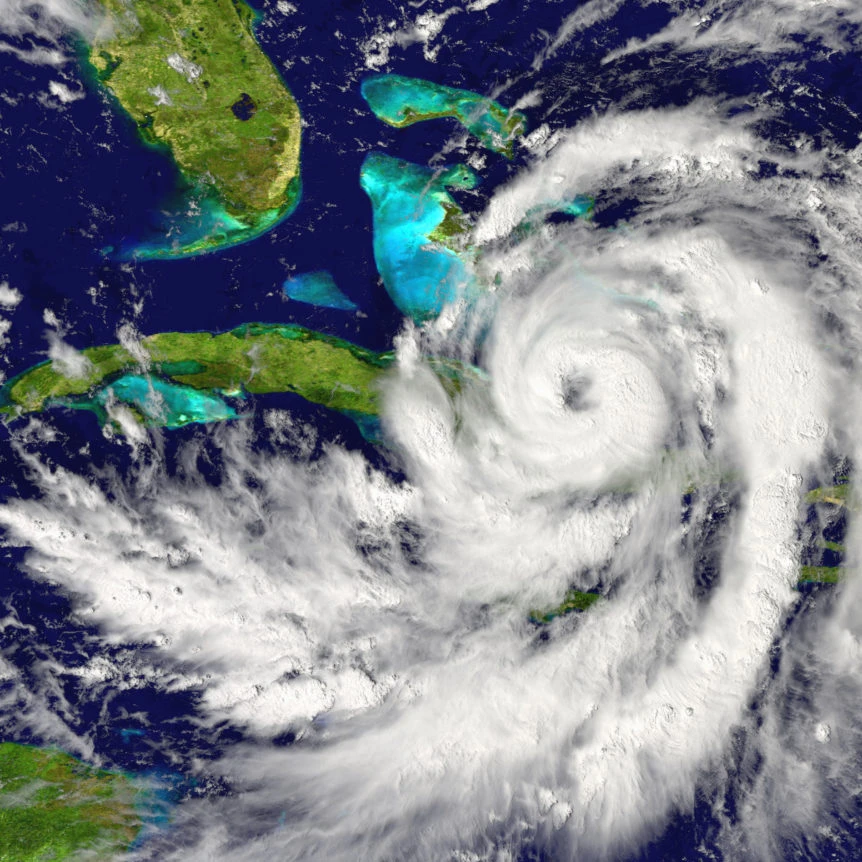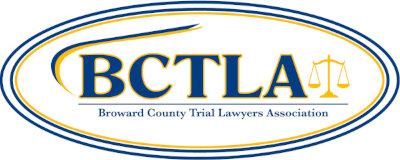Before Disaster Strikes:
What should a homeowner or business owner do before a Hurricane/disaster hits?
Many homeowners have difficulty knowing how to handle their insurance claims after disaster strikes. These are a few things that you can do right now to make sure you are prepared in the event that a hurricane or other natural disaster strikes you home or business to help expedite your claims process:
1) Organize insurance documents and place them in a safe folder that is easily accessible. Save a backup hard copy or an electronic copy on a flash drive or cloud storage.
2) Make sure that you have casualty insurance and flood insurance. Many homeowners do not realize that flood insurance is often a separate insurance policy that is not required by your mortgage company unless you are in a flood zone.
3) Organize property ownership records. Include property deeds, mortgages, or any other records of property ownership. This can include credit card receipts of major purchases and renovations.
4) Thoroughly, document your personal property and belongings on a spreadsheet with the price of the items and the age of the item. Do a walk-through video on your smartphone and/or take pictures of the interior and exterior of your home, your vehicle, and any other belongings.
5) Make sure you photograph all of the contents of your home, garage, closets, or other storage areas if possible.
After Disaster strikes:
Here is a list of frequently asked questions by my clients. They pertain to the claims process and claims handling portion of your insurance claim after a loss occurs but before a lawsuit is filed.
Can I hire my own contractor to provide an estimate?
Yes. In fact, you should always get a second opinion from someone that you know and trust. It is in your best interest to find multiple contractors and have them provide additional estimates to submit to the insurance company. Get as many opinions as possible as to how much money it will take to return your home to its pre-loss condition. Do not simply trust the first contractor that the insurance company sends out to the property. After a hurricane, it is very difficult to find someone to provide quick estimates and/or perform repairs within a reasonable timeframe so start this process as early as possible. Do not wait for the insurance company.
What damages does my policy cover in general?
In general, there are four main areas of coverage under a homeowner’s policy.
- Coverage A: Dwelling
- Coverage B: Other structures
- Coverage C: Contents
- Coverage D: Additional Living Expenses and Loss of Use
It is important to refer to your declaration page to confirm. Not all policies have all four coverages.
What is a Proof of Loss?
A proof of loss is a sworn statement submitted by the insured that states the amount of damages that the homeowner is claiming under the policy. If it is requested by the insurance company then it is in the best interest of the homeowner to consult with a professional who has experience handling insurance claims. Once it is executed and submitted to the insurance company, they must make a determination within 30 days.
What is the valued policy law?
Florida’s valued policy law states that if your home is totaled then you are entitled to policy limits under coverage A of your policy.
How long does the Insurance company have to pay or deny my claim?
Generally, the insurance company must make a determination of coverage within 90 days after the claim is opened. One exception to the rule is if proof of loss is requested. Once the executed proof of loss is submitted to the insurance company then they have 30 days to make a coverage determination.
Does the insurance company pay for my living expenses if I need to move out of my house?
Most insurance policies do cover additional living expenses. In order to be sure, turn to the declarations page and look at Coverage D in your policy. They will need it to be cataloged in detail.
What is an insurance adjuster?
An insurance adjuster is hired to determine coverage and scope of damages when an insurance claim is filed. An adjuster may work for an insurance company, or they may work for a third-party adjusting firm and be hired by the insurance company. A homeowner may also hire a public adjuster to provide an estimate to compete with the insurance adjusters’ estimate. All adjusters must be licensed to adjust claims in Florida and must adhere to a code of ethics. I have attached a copy of the adjuster’s ethical requirements to this welcome packet.
What do I need to do after I file a claim?
- Make sure to provide access to the property for inspection.
- Make sure to follow up with the insurance company in writing and by phone. Always memorialize your phone calls in an email to the insurance company after they occur.
- Comply with document requests that are reasonable a relevant to the claim. If you cannot determine the relevancy of their request, then request an explanation in writing. They are required to provide it.
- If an examination under oath, proof of loss, or recorded statement are requested then you need to comply, but it is in your best interest to consult with an attorney.
- Mitigate any known damages.
- Wait 90 days.
Does the Insurance company need to respond to my emails/phone calls?
Yes. They have 14 calendar days to acknowledge. Fla. Admin. Code Ann. r. 69O-166.024 requires that upon receipt of a communication with respect to a claim, the insurer acknowledges receipt of the communication within 14 calendar days. In addition, if the communication constitutes notification of a claim, the insurer’s acknowledgment must provide the necessary claim forms and instructions (including an appropriate telephone number that the policyholder can call to discuss the claim) unless the acknowledgment reasonably advises that the claim appears to be a non-covered claim.
Should I start repairs?
Absolutely. In fact, you have a duty to mitigate the damages to your property under the policy. It is in your best interest to repair your property as soon as possible. If you cannot afford full repair/replacement, then you can at least get the emergency repairs done by a contractor that will perform the work for an assignment of benefits. The assignment of benefits is an assignment of the homeowner’s right to collect for the services performed by the contractor. It only assigns them the right to collect for services performed. It is a good option for services such as water extraction, tarp placement/temporary roof repairs, mold testing, mold removal, plumbing repairs.
Litigation
If your insurance company has denied your claim or is refusing to pay for all of your damages that are covered under the policy then an insured can file a lawsuit. Below is a list of frequently asked questions as it pertains to your lawsuit against your insurance company.
If I hire an attorney to handle my property damage claim how do they get paid?
Florida statute 627.428 allows plaintiffs’ attorneys to work on a contingency fee basis. The homeowner does not need to pay any money out of pocket. The statute states if an insured prevails in a lawsuit against their insurance company for breach of the insurance policy, the trial court must issue an award against the insurance company and in favor of the insured a reasonable sum as fees or compensation for the insured’s attorney prosecuting the suit in which the recovery is had. When they are awarded, the attorney’s fees are included in the judgment rendered in the case. This also means that the payment of a previously denied or underpaid claim following the initiation of a lawsuit but prior to final judgment or jury verdict in favor of the insured constitutes a confession of judgment for the purposes of 627.428. The same rationale applies if a lawsuit has been filed and there is a settlement at mediation, arbitration, or appraisal. The statute applies to all homeowner’s insurance contracts therefore the terms of section 627.428 are an implicit part of every insurance policy issued in Florida. However, it is important to note that the statute does not apply to Federally backed flood insurance policies.
What is Bad Faith by the Insurance company?
Insurance companies owe a duty to their policyholders to handle all insurance claims in good faith. There are several factors that are taken into consideration. I have attached a brief overview of Bad Faith to this welcome packet as well.
How long does the Insurance company have to send me my check when we settle?
They have 20 days to tender payment pursuant Florida Statue 627.4265. If payment is not tendered within 20 days, then it shall bear interest at 12 percent per year. However, tender of the payment may be conditioned upon the execution of a release mutually agreeable to the claimant and the insurer. Where tender of payment is conditioned upon the execution of a release, “the interest shall not begin to accrue until the executed release is tendered to the insurer.”
Why is the Mortgage Company named as a payee on my check?
If you have a mortgage or any lien holder on the property, then they are entitled to have their name on the insurance proceeds.
Why is the public adjuster’s name on my check?
If you hired a public adjuster, then they are entitled to a percentage of the indemnity proceeds. The percentage that they are entitled to is determined by the terms of the contract that you signed with the public adjuster. If you have a hurricane claim, then the percentage can not be higher than 10% pursuant to Florida Law.
What is expected of me during the litigation process?
The primary duties expected of the client are to respond to phone calls and document requests from our office. Be available for deposition testimony. Be available for trial testimony if necessary.
If you have any additional questions please feel free to contact our office for a free overview of your particular claim.
DISCLAIMER: This article is not intended to substitute legal advice. For more information, please contact Schirmer Law directly and ask to speak with an attorney.









